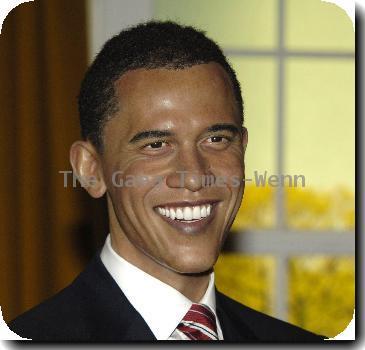House’s No. 2 Democrat says dispute on how to pay for health bill remains a major obstacle
By Erica Werner, APFriday, February 12, 2010
Hoyer: Paying for overhaul holds up health bill
WASHINGTON — The No. 2 Democrat in the House said Friday that a dispute over how to pay for President Barack Obama’s sweeping health care overhaul is holding up a deal between House and Senate Democrats, one of several stumbling blocks to reviving the legislation.
Although Obama has reached out to Republicans and plans a televised bipartisan summit later this month, congressional Democrats are trying to work out their differences over taxes, a national clearinghouse for buying insurance and special state exemptions for Medicaid before the session, an agreement that Obama also wants.
Democrats have struggled to resolve these issues from their disparate Senate and House passed bills. House Majority Leader Steny Hoyer, D-Md., said Friday that he was hopeful although he didn’t sound overly optimistic in an interview with Maryland reporters in Annapolis.
“I think we certainly have a framework of a basis for an agreement between the two houses but we haven’t gotten there yet,” Hoyer said.
“It’s going to be tough and we’ll have to see,” he said.
Hoyer’s comments came as lawmakers of both parties jockeyed for position ahead of the Feb. 25 summit. The White House began notifying key lawmakers Friday that they would be invited to attend, including Rep. Dave Camp, R-Mich., who has offered his own health care plan. Still, Republicans and Democrats alike are skeptical that any bipartisan progress can be made.
In an op-ed Friday, Rep. Tom Price, R-Ga., a physician and head of the Republican Study Committee, derided the summit as “simply an attempt by the president to use the White House as a political tool to intimidate his way into a government takeover of health care. The American people and Republicans in Congress will not be taken by this Chicago-style politics.”
“It appears our ‘pragmatic’ president still hasn’t gotten the message and remains immovably wedded to the plans already passed in the House and Senate,” Price wrote.
In a letter to the top congressional Democrats, the House’s leading Republicans criticized the ongoing Democratic negotiations.
“The existence of any kind of backroom health care deal among the White House and Democratic Leaders would certainly make a mockery of the president’s stated desire to have a ‘bipartisan’ and ‘transparent’ dialogue on this issue,” wrote Reps. John Boehner of Ohio, Eric Cantor of Virginia and Mike Pence of Indiana.
A year in the making, the health legislation was on the verge of completion before it was thrust into disarray by an upset loss in a special election last month that denied Democrats their filibuster-proof Senate majority. Since then Democratic leaders have scrambled to pick up the pieces.
They’re focused on developing a package that can pass the Senate under controversial and complex rules that require only a simple majority vote, not the 60-vote supermajority they no longer control. But as Hoyer’s comments indicated, it’s hard going as Democrats spooked by the Republican win in Massachusetts balk.
A major complication is a tax on high-value insurance plans included in the Senate’s version of the health bill, which the House would be called upon to pass along with the package of fixes. The insurance plan tax is strongly opposed by organized labor and by many House Democrats, some of whom felt their fears were validated when the AFL-CIO released a poll indicating that Republican Scott Brown made a strong showing among union voters in the Massachusetts special election.
House Democrats would rather pay for the legislation by raising taxes on high-wage earners, which moderate Democrats in the Senate oppose.
“Some pay-fors in the Senate bill are very controversial as you know, and some of our pay-fors are very controversial,” Hoyer said.
Nonetheless, he said, “We believe that there are a majority of votes in the United States Senate to pass an agreed-upon version between the Senate and the House and we’re working on that.”
Even if they reach agreement Democrats would have to strong-arm their sweeping health legislation through Congress with no GOP votes, a move opposed by moderate Democrats in both chambers. Liberals, though, largely support the approach, and see a scenario where Obama’s health care summit could embolden Democrats to do it. That could happen if Republicans make a poor showing at the summit, or if Democrats then incorporate some Republican ideas into legislation, forcing a vote and moving ahead on their own if Republicans don’t play along.
Less plausibly, in the view of Democrats, Obama could emerge from the event with an agreement with Republicans and move to pass legislation with bipartisan support that surely would be far narrower in scope than what Democrats have been aiming for. Finally, the summit could stand as a piece of political theater but fail to create the impetus needed to pass any legislation, effectively sounding the death knell on the health care overhaul.
Associated Press Writer Brian Witte in Annapolis, Md., contributed to this report.
Tags: Annapolis, Barack Obama, Geography, Government Regulations, Health Care Reform, Industry Regulation, Maryland, North America, Political Issues, Political Organizations, Political Parties, United States, Washington


